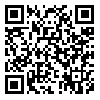BibTeX | RIS | EndNote | Medlars | ProCite | Reference Manager | RefWorks
Send citation to:
URL: http://jdisabilstud.org/article-1-3539-en.html
2- Professor, Department of counseling, Faculty of Psychology and Educational sciences, Mohaghegh Ardabili University, Ardabil, Iran
3- Assistant Professor, Islamic Azad University, Ardabil, Iran
Abstract
Background & Objectives: Specific learning disorder is one of the most common neurodevelopmental conditions in childhood, significantly impacting the lives of many children worldwide. Consequently, numerous studies have investigated its etiology and treatment. Emerging evidence suggests that low academic self-regulation is a prominent issue associated with learning disabilities. A variety of therapeutic and educational strategies have been explored to alleviate the symptoms and challenges faced by students with specific learning disorders. Many of these children struggle with emotional regulation, particularly in managing anxiety, and show reduced ability to identify, accept, and express their emotions. Therefore, emphasizing emotional regulation as part of self-regulation training in their education may be beneficial. One emotion-focused intervention is the instruction of emotion regulation processes, and research into the effectiveness of this approach in various domains has been promising. However, it is evident that this program has not yet been applied to academic self-regulation in students with specific learning disorders. Accordingly, the present study was conducted to evaluate the effectiveness of emotional process regulation training on academic self-regulation in students with specific learning disorders.
Methods: This research adopted a semi-experimental design, featuring a pre-test–post-test structure with both an experimental group and a control group. The statistical population included female elementary school students with learning disabilities in Khalkhal city during the 2023–2024academic year. Thirty eligible participants were selected through convenience sampling and, after meeting the inclusion criteria, were assigned to two groups of 15 students each. The instruments used in the study were the Learning Problems Questionnaire by Colorado Wilcott et al. (2011) and the Academic Self-Regulation Scale by Bouffard et al. (1995). The process regulation training program developed by Gross (2015) was administered to the experimental group in 10 sessions of 90 minutes each. Data analysis was conducted using SPSS version 27 at both descriptive (mean and standard deviation) and inferential levels (univariate analysis of covariance).
Results: The results indicated that emotional process regulation training had a significant effect on improving academic self-regulation in the experimental group after controlling for the pre-test scores (p<0.001). Specifically, 30.6% of the variance in academic self-regulation during the post-test phase was attributed to the emotional process regulation training.
Conclusion: Overall, the findings of this study demonstrated that teaching emotion regulation processes was effective in enhancing academic self-regulation among students with specific learning disorders. These results hold important implications for psychology, as emotion regulation training is both low-cost for patients and requires minimal instruction for practitioners and specialists. Accordingly, it is recommended that researchers and professionals consider incorporating this educational program as a complementary intervention alongside other treatments aimed at improving academic self-regulation in students with learning disabilities. Despite these promising outcomes, the present study also faced certain limitations. The use of self-report measures, the exclusive inclusion of female students with specific learning disorders in Khalkhal city due to limited access, and the absence of a follow-up period due to time constraints suggest that the generalizability of the findings should be approached with caution. Future studies are encouraged to include larger and more diverse samples of both male and female students, as well as follow-up assessments, to yield more comprehensive and generalizable results.
| Rights and permissions | |
 |
This work is licensed under a Creative Commons Attribution-NonCommercial 4.0 International License. |



